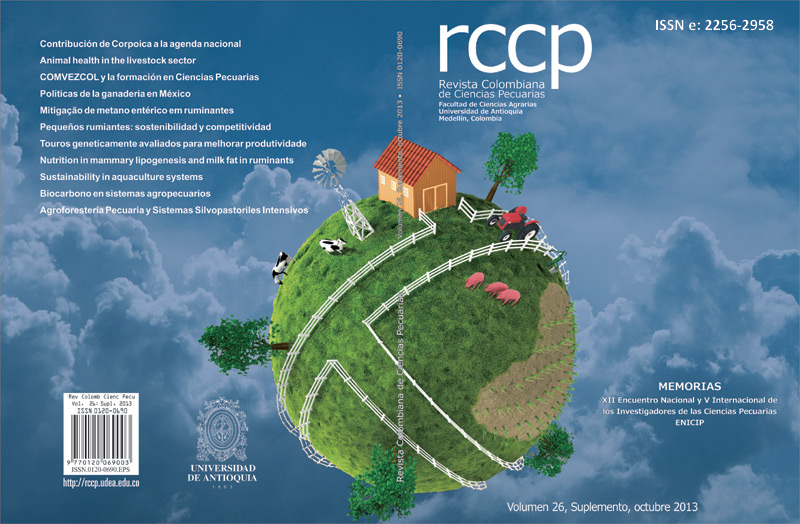Métodos de avaliação e estratégias de mitigação de metano entérico em ruminantes
DOI:
https://doi.org/10.17533/udea.rccp.324839Palavras-chave:
climate change, greenhouse gas, livestock, methane, sustainabilityResumo
Summary
Latin America livestock industries have been especially criticised because of their large greenhouse gas production as a result of the use of degraded forages and performances below production potential. Agriculture contributes a significant amount of the three main greenhouse gases: methane (CH4), carbon dioxide (CO2) and nitrous oxide (N2O). Methane gas has a global warming potential 25 times greater than CO2. Enteric methane is an important greenhouse gas which is responsible for approximately 15% of global warming. The tendency and legal necessity to mitigate the greenhouse gas emissions is likely to have a direct influence on the increased efficiency of livestock systems, including animal nutrition and handling. The development of mitigation strategies and the viability of the strategies' practical applications are issues that have been researched around the world. There are various nutritional strategies to mitigate enteric methane that have been studied and developed. All of these have different viabilities, costs and possibilities to be accepted by the producers. The choice of which one will be adopted should be based on the capacity to reduce methane emissions associated with economical viability and the maintenance of animal performance. The increase in zootechnial parameters that will be achieved in production systems (mainly the ones related to efficient forage use) associated with good nutritional, health and reproductive management are important strategies to consolidate Brazil as a food producer to the world, respecting the demands related to the land, water, conservation of biodiversity and the emission of greenhouse gases.
Key words: climate change, greenhouse gas, livestock, methane, sustainability.
Downloads
Downloads
Publicado
Como Citar
Edição
Seção
Licença
Copyright (c) 2016 Revista Colombiana de Ciencias Pecuarias

Este trabalho está licenciado sob uma licença Creative Commons Attribution-NonCommercial-ShareAlike 4.0 International License.
Os autores autorizam a RCCP a reimprimir o material nela publicado.
A revista permite que o(s) autor(es) detenham os direitos autorais sem restrições, e permitirá que o(s) autor(es) mantenham os direitos de publicação sem restrições.






